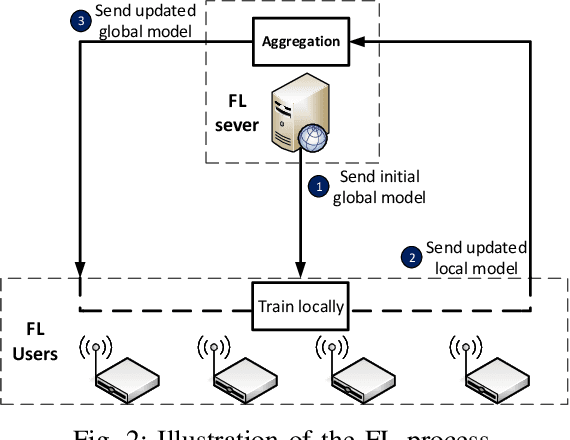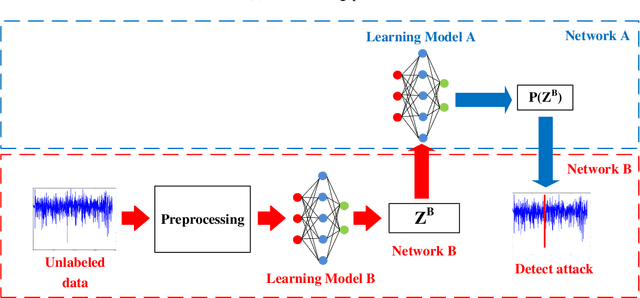Deep Transfer Learning: A Novel Collaborative Learning Model for Cyberattack Detection Systems in IoT Networks
Paper and Code
Dec 02, 2021



Federated Learning (FL) has recently become an effective approach for cyberattack detection systems, especially in Internet-of-Things (IoT) networks. By distributing the learning process across IoT gateways, FL can improve learning efficiency, reduce communication overheads and enhance privacy for cyberattack detection systems. Challenges in implementation of FL in such systems include unavailability of labeled data and dissimilarity of data features in different IoT networks. In this paper, we propose a novel collaborative learning framework that leverages Transfer Learning (TL) to overcome these challenges. Particularly, we develop a novel collaborative learning approach that enables a target network with unlabeled data to effectively and quickly learn knowledge from a source network that possesses abundant labeled data. It is important that the state-of-the-art studies require the participated datasets of networks to have the same features, thus limiting the efficiency, flexibility as well as scalability of intrusion detection systems. However, our proposed framework can address these problems by exchanging the learning knowledge among various deep learning models, even when their datasets have different features. Extensive experiments on recent real-world cybersecurity datasets show that the proposed framework can improve more than 40% as compared to the state-of-the-art deep learning based approaches.
 Add to Chrome
Add to Chrome Add to Firefox
Add to Firefox Add to Edge
Add to Edge